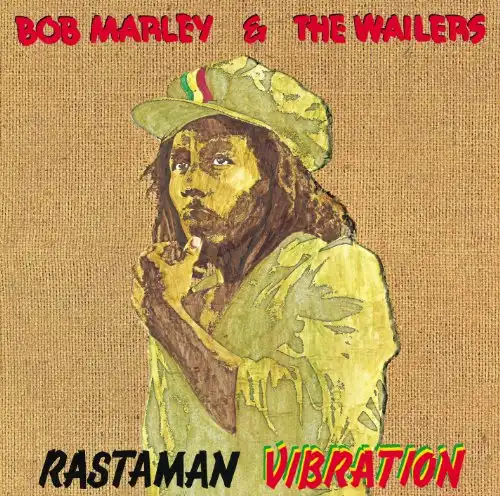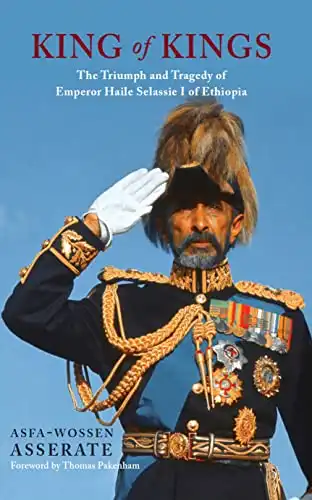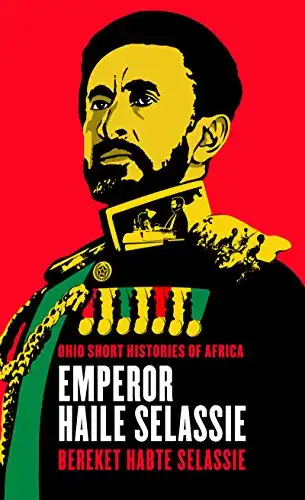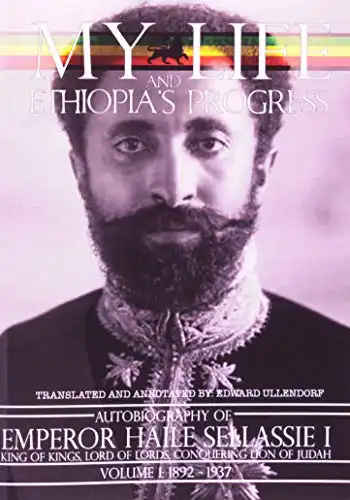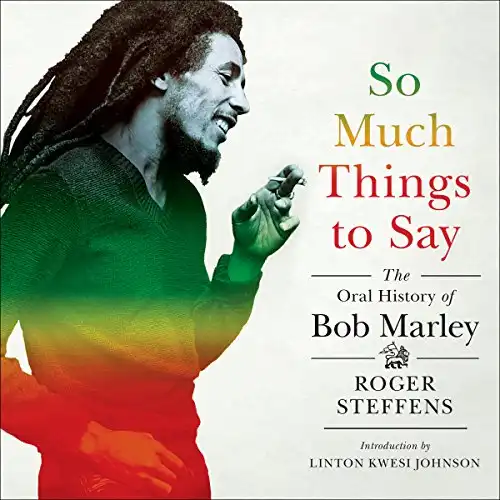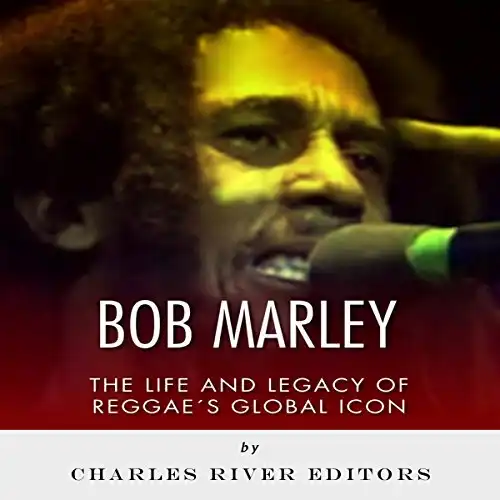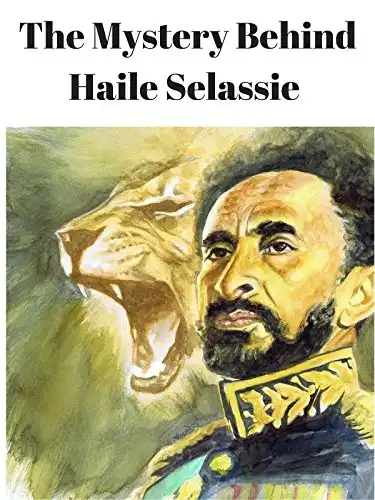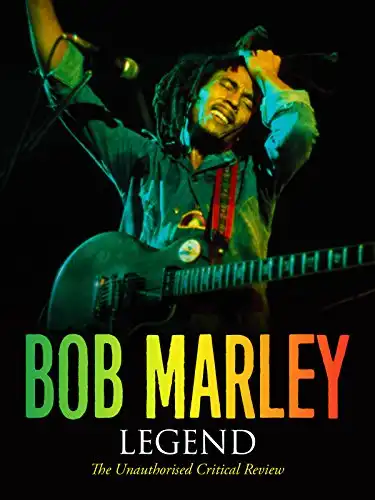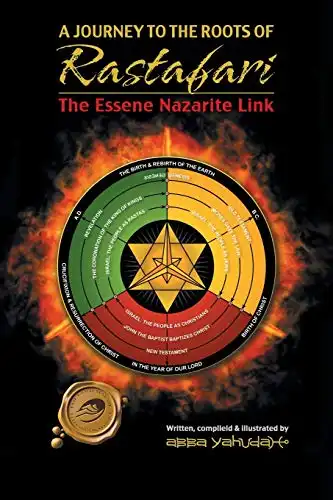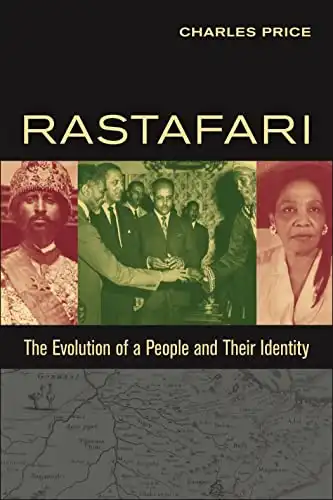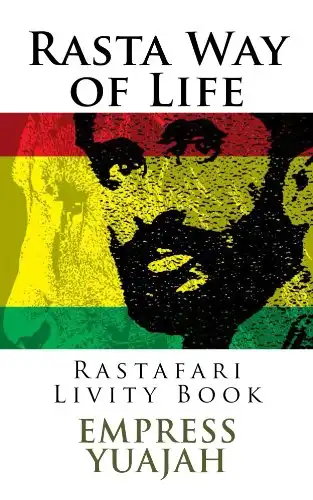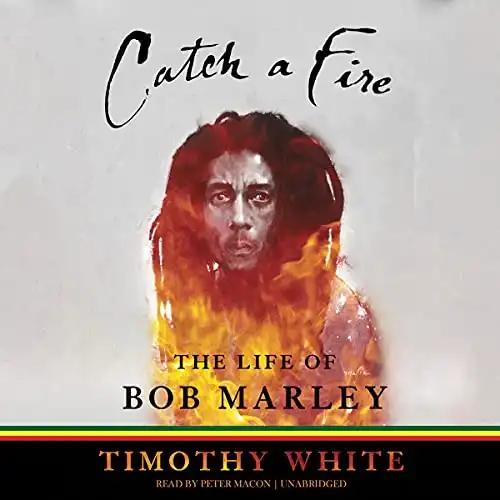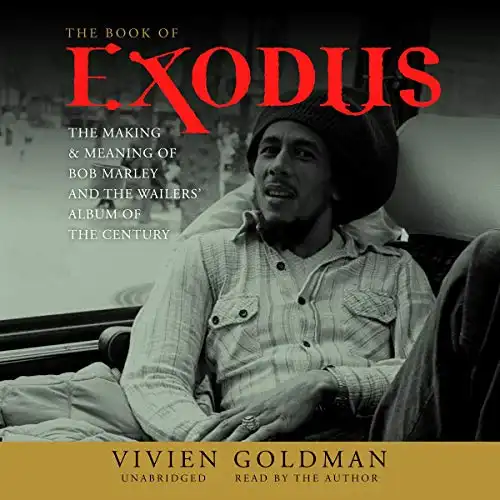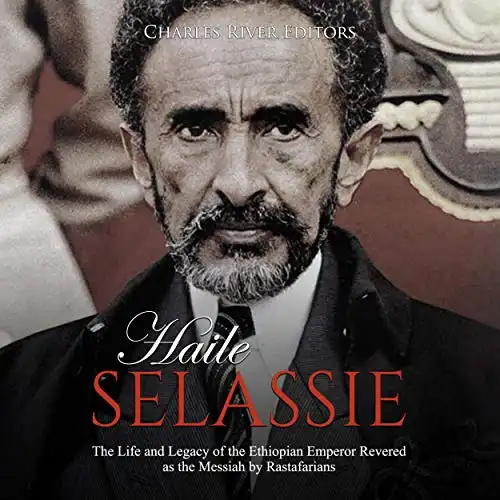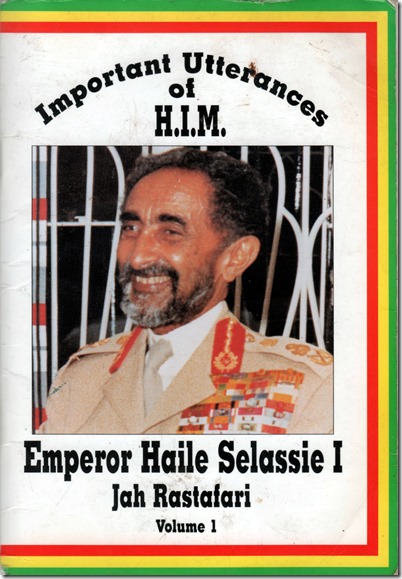
On October 4, 1963, Haile Selassie I, Emperor of Ethiopia, gave a speech to the United Nations General Assembly that includes a famous quotation you almost surely know if you’re a fan of the late, great Reggae musician Bob Marley.
Selassie’s speech provided the basis for one of Marley’s most popular songs, titled “War.”
It’s included on the classic Bob Marley & the Wailers album, Rastaman Vibration, released by Island Records on April 30, 1976.
Here’s are key words from the speech that Bob Marley incorporated into the lyrics of his song and made familiar to millions of people:
“Until the philosophy which holds one race superior and another inferior is finally and permanently discredited and abandoned…Until there are no longer first class and second class citizens of any nation…Until the color of a man’s skin is of no more significance than the color of his eyes…Until the basic human rights are equally guaranteed to all without regard to race…Until that day, the dream of lasting peace…will remain but a fleeting illusion, to be pursued but never attained.”
Until the day when racism no longer exists, Marley sings at the end of the verses, there will be “War…Me say war.”
In 1963 and 1976, the word war literally meant armed rebellions by oppressed black people in countries like South Africa, Angola and Mozambique. But in my own mind, and I think in the minds of other Marley fans, it has also taken on a more symbolic meaning; a word that can also be used describe nonviolent protests and actions against injustice and inequality.
As a fan of Bob Marley since the late ‘70s, I’ve listened to “War” many times. It still awes and inspires me to hear Bob and the Wailers sing it or see them perform it in videos on YouTube.
However, while I am no expert on “H.I.M.” (His Imperial Majesty) Haile Selassie, I have read enough to know that his record as Emperor of Ethiopia includes some things that can seem at odds with the concept of equal rights and justice.
Selassie was born in 1892 into Ethiopia’s royal family, which practiced the Ethiopian Orthodox version of Christianity and traced the family’s origins back to King Solomon of Israel and Makeda, Queen of Sheba.
His birth name was Tafari Mkonnen. As a young nobleman he was called “Ras Tafari” – the title “Ras” roughly translating as “Duke” in English.
This became the inspiration for the name of the Rastafari movement created in 1933 by Jamaican preacher Leonard Percival Howell, whose teachings combined Pan Africanism and Ethiopian Orthodox Christianity with the use of the “sacred herb” — ganja.
Howell believed that Tafari was the “Black Messiah,” an incarnation of God on Earth, the “Dread Lion” of Judah, King of Kings, predicted by Biblical prophecy. To Howell and his followers, Tafari’s coronation as Emperor was the realization of that prophecy.
Tafari ascended to the throne in 1930, though not peaceably. He had to use his family’s army to defeat that of a rival royal family at the Battle of Anchem.
Once in control of the throne, he took the name Haile Selassie, meaning “Power of the Trinity.”
Although it’s hard to think of any absolute monarchy as a bastion of freedom, he did take steps in what most people would think of as a positive direction. For example, he introduced Ethiopia’s first written constitution in 1931. It ensured some basic rights for most Ethiopian citizens and created a bicameral legislature.
Selassie portrayed it as a transitional stage to democracy. However, it kept most real political power in the hands of the Emperor and Ethiopia’s major landowning families and did not lead to the abolition of slavery in the country. This was not a minor human rights issue, given that Ethiopia had an estimated two million slaves — in this case, black people kept as “vassals” by wealthy black people — out of a population of about eleven million.
Nonetheless, the reforms Selassie pursued and his efforts to modernize Ethiopia’s infrastructure and encourage education, made him seem like a relatively enlightened and progressive African leader to observers in Western countries and the Caribbean. And, his fame increased in the years leading up to Word War II.
During Selassie’s youth, Italy controlled the area north of Ethiopia called Eritrea. In 1896, Italy attempted to expand its control southward. This led to the Battle of Adwa, in which Ethiopia’s army defeated Italy’s colonial forces.
In 1935, Italy’s Fascist dictator Benito Mussolini, ally of Nazi Germany, had his modern army invade Ethiopia. This time the Italians prevailed.
Haile Selassie fled to England. Several months later, on June 20, 1936, he addressed the League of Nations, forerunner of the United Nations. In his speech, Selassie asked Westerns nations and other League members to help Ethiopia overthrow its Italian invaders. He warned, prophetically, “It is us today, it will be you tomorrow.”
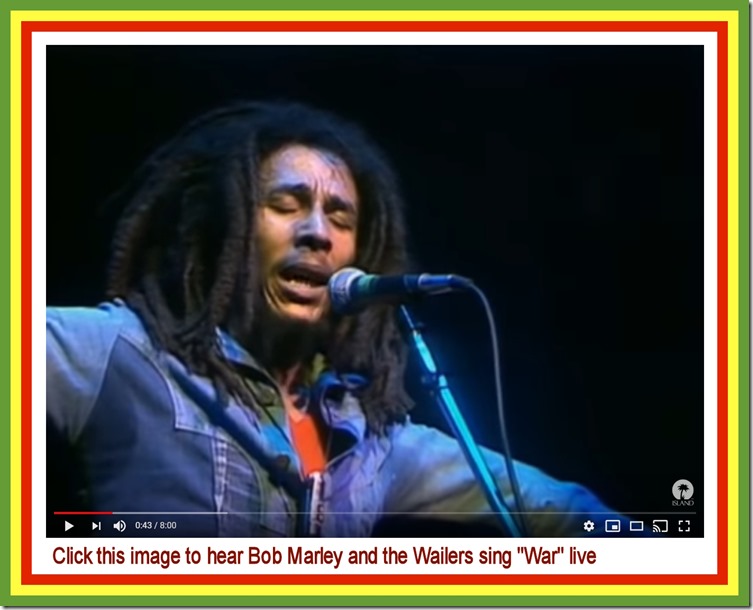 The speech made Selassie an even bigger celebrity. TIME magazine named him “Man of the Year” and featured him on the cover of the January 6, 1936 issue.
The speech made Selassie an even bigger celebrity. TIME magazine named him “Man of the Year” and featured him on the cover of the January 6, 1936 issue.
But neither the League of Nations nor its members helped Ethiopia fight Italy — until Selassie’s prediction came true and Western democracies were battling Nazi Germany and Italy themselves during World War II.
In 1941, British forces liberated Ethiopia. Selassie returned to the throne. To his credit, one of his first actions upon regaining power was to outlaw slavery.
After World War II, he was a leader in efforts to help African countries transition to independence from European colonial rule.
Toward that end, Selassie brought representatives of 32 African governments together in 1963 to form the Organisation of African Unity (OAU).
At the initial OAU Conference held in Ethiopia’s capital Addis Ababa in May 1963, the group’s members pledged to increase cooperation among African states to improve the lives of people throughout Africa and eliminate the last bastions of colonialism in South Africa, Angola and Mozambique.
Selassie was also a leading promoter of Pan Africanism, which fostered a sense of unity and pride among black people throughout the world whose ancestors were taken from Africa as slaves.
For these and other reasons, from the ‘30s to the ‘70s Selassie was increasingly viewed as a towering hero in Africa and the Caribbean islands.
He was particularly popular in Jamaica among members of the Rastafarian movement, which had grown considerably in the 1960s.
Selassie was aware of the Rastafarians. But he didn’t visit Jamaica until April 21, 1966.
When he landed at the Kingston airport that day, he was surprised to find an estimated one hundred thousand Rastafarians from throughout the country had gathered in Kingston to see him.
One of them was Alpharita “Rita” Marley, who had married Bob two months previously.
Rita was into Rastafarianism before Bob. But he, too, became a knowledgeable and devoted Rastafarian, eventually the most famous Rasta on the planet. Among the things he read about Haile Selassie that inspired him was the eloquent speech the Emperor gave to the United Nations on October 4, 1963, five months after the OAU’s Addis Ababa Conference.
In that remarkable speech, Selassie urged the United Nations and its members to work together to stop the nuclear arms race and take a stand against the apartheid government in South Africa and racism in general.
Selassie chose to give the speech in his native language, Amharic.
It was later translated into English by the Imperial Ethiopian Ministry of Information, and published in the 1972 book Important Utterances Of H.I.M. Emperor Haile Selassie I, a seminal source for Rastafarians.
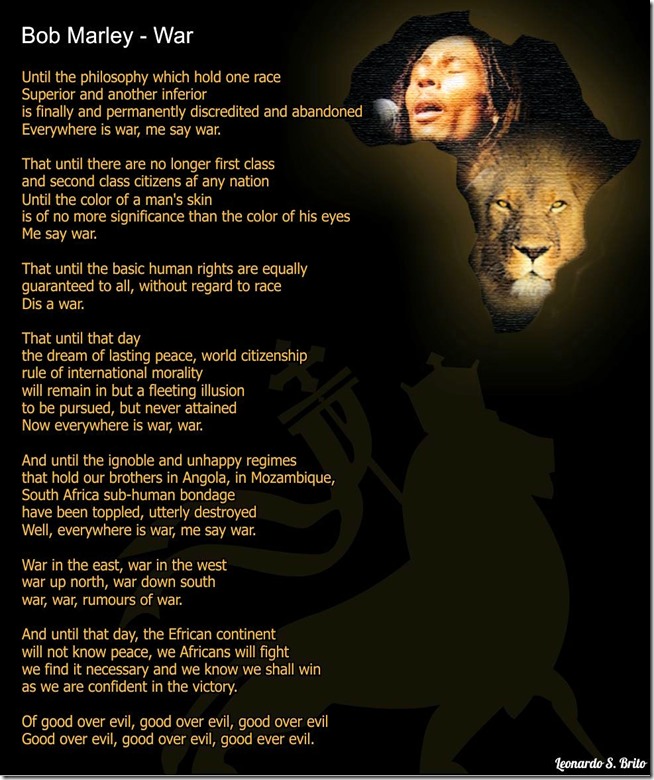 In English, the key part of Selassie’s speech that inspired Bob Marley’s song “War” is as follows.
In English, the key part of Selassie’s speech that inspired Bob Marley’s song “War” is as follows.
“On the question of racial discrimination, the Addis Ababa Conference taught, to those who will learn, this further lesson:
that until the philosophy which holds one race superior and another inferior is finally and permanently discredited and abandoned;
that until there are no longer first class and second class citizens of any nation;
that until the color of a man’s skin is of no more significance than the color of his eyes;
that until the basic human rights are equally guaranteed to all without regard to race;
that until that day, the dream of lasting peace and world citizenship and the rule of international morality will remain but a fleeting illusion, to be pursued but never attained.
And until the ignoble and unhappy regimes that hold our brothers in Angola, in Mozambique and in South Africa in subhuman bondage have been toppled and destroyed;
until bigotry and prejudice and malicious and inhuman self-interest have been replaced by understanding and tolerance and good will;
until all Africans stand and speak as free beings, equal in the eyes of all men, as they are in the eyes of Heaven;
until that day, the African continent will not know peace. We Africans will fight, if necessary, and we know that we shall win, as we are confident in the victory of good over evil.”
Those words, turned into lyrics and set to music by Marley, are incredibly eloquent and stirring.
Given the events that occurred in Ethiopia between 1963 and Selassie’s death in 1975, they are also somewhat ironic.
During his final decade as Emperor, human rights groups criticized Selassie’s regime for suppressing civil liberties and torturing political prisoners.
His army was charged with committing shocking atrocities against rebels who wanted independence for Eritrea, which Selassie had absorbed into Ethiopia after World War II with the approval of the Western Allies and United Nations — but against the will of most people living there.
Those atrocities reportedly included mass slaughters of civilians during late ‘60s and early ‘70s, later described as an attempt at the “ethnic cleansing” of the Muslim Harari people of Eritrea.
In 1974, a famine in Ethiopia killed tens of thousands of people. Skyrocketing inflation led to riots.
That September, Selassie was overthrown and imprisoned by a Soviet-backed group of Marxists called the Derg.
The following year, on August 28, 1975, the Ethiopian state media reported that Haile Selassie had died of “respiratory failure” at age 83 following complications from a prostate operation. His followers believed he had been murdered.
The Derg imposed a brutal Communist dictatorship on Ethiopia that was far worse than Selassie’s regime. When they were ousted by an armed revolt in 1991, Selassie’s bones were found on the palace grounds. For the next nine years they were kept in a coffin in a local church.
One November 5, 2000, the Ethiopian Orthodox church held an imperial-style funeral for Selassie. One of the people who attended was Rita Marley.
Her husband Bob, the Rasta who made Selassie’s UN speech a musical anthem, had died of cancer in 1981.
In the intervening years Rita and Bob’s sons and daughters mastered the music business in ways Bob probably never dreamed of and turned his musical legacy into a worldwide multi-faceted business empire.
One part of that legacy is the song “War,” which has helped make millions of people who know little or nothing about Haile Selassie familiar with his most famous quotation.
* * * * * * * * * *
Comments? Corrections? Post them on my Famous Quotations Facebook page or send me an email.
Related reading and listening…


